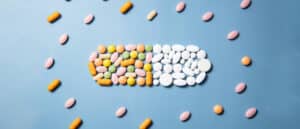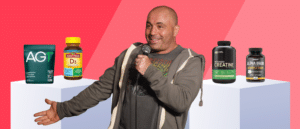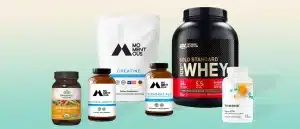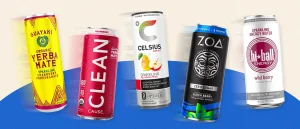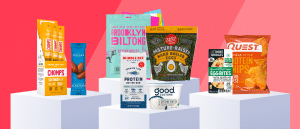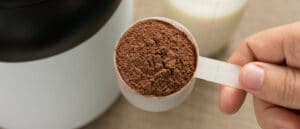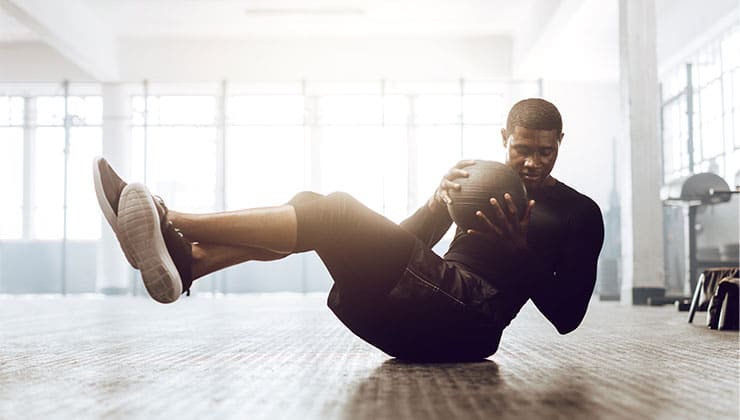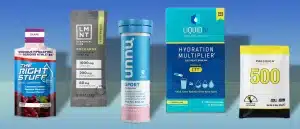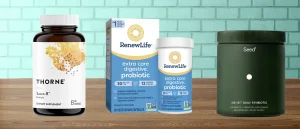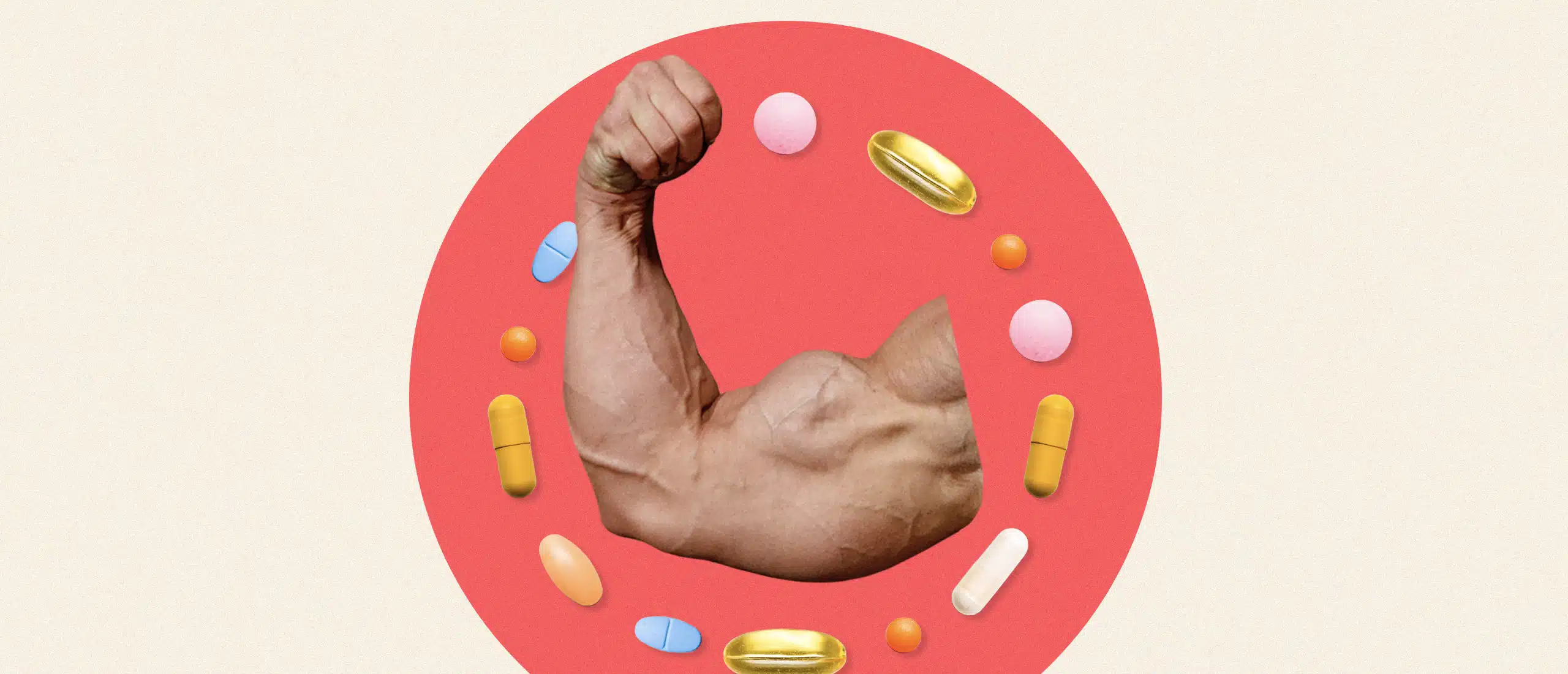
14 Best Vitamins for Muscle Growth
Fast Facts
- Both macronutrients (protein, carbs, and fats) and micronutrients (vitamins and minerals) are important for muscle growth.
- A balanced diet including a variety of vitamins and minerals will establish the foundation for building muscle.
- Vitamins and minerals carry out key functions—like oxygen transport, muscle contraction, and muscle repair—to help your body build and maintain muscle mass.
When it comes to muscle-building nutrition, protein powder, pre-workout, and creatine steal the show. While these nutrient-dense supplements will definitely give you an edge, if you aren’t hitting your basic macro and micronutrient needs you’ll only get so far. Fuel well, and you can expect serious gains.
But in a sea of influencers pushing the carnivore diet one day and intermittent fasting the next, narrowing down what to eat can feel complicated. According to registered dietitian Imashi Fernando, MS, RD., however, so long as your diet (or supplement stack) covers the key micronutrients—like vitamins and minerals—for muscle growth you’re golden.
Micronutrients carry out key functions—like oxygen transport, muscle contraction, and muscle repair—to help your body build and maintain muscle mass, and perform better. Here are all of the essential vitamins and minerals your body needs for muscle gain.
About the Expert:
Imashi Fernando, MS, R.D., CDCES is a registered dietitian who works in a large hospital system as a clinical dietitian and provides one-on-one nutrition counseling.
Benefits of Taking Vitamins for Muscle Growth
Eating a well-balanced diet is square one for hitting your micronutrient needs, but taking a multivitamin or supplementing with specific vitamins you might be missing out on is a solid bet for filling in the gaps in your diet. Here are a few potential benefits of hitting your micros:
- Boost muscle recovery
- Reduce inflammation and muscle soreness
- Support the production of anabolic hormones, like testosterone
- Increase energy
- Support muscle contraction
- Reinforce signaling between your muscles and brain
- Regulate blood pressure
- Support oxygen capacity, and delivery to muscles and lungs
- Support strong and healthy bones
- Increase resting metabolism
Best Supplements for Muscle Growth
Vitamin C
Vitamin C gives you the power to pump more iron. The antioxidant shields muscle cells from harmful free radicals and supports the production of testosterone and other muscle-building hormones. It also helps you absorb iron, which is essential for transporting oxygen and other nutrients to your muscles, organs, and other tissues.
It might also fight muscle soreness. One study from the International Journal of Sports Nutrition and Exercise Metabolism found that vitamin C supplementation before and after training reduced muscle soreness and prevented the oxidation of glutathione—a very potent antioxidant that may enhance gains (1). Vitamin C also boosts collagen production, promoting skin elasticity and overall tissue health.
For a boost of vitamin C, pack your plates with colorful fruits and vegetables like oranges, kiwi, bell peppers, strawberries, tomatoes, and cruciferous vegetables (broccoli, Brussels sprouts, and cabbage).
Vitamin A
The mighty antioxidant, Vitamin A, doesn’t directly strengthen your muscles, but it keeps you performing optimally. It supports your vision, is essential for bone growth and development, and fights inflammation.
To harness the benefits of vitamin A, incorporate more animal foods like liver, salmon, and egg yolks, and plant foods including sweet potatoes, squash, and carrots. “Vitamin A is fat soluble, so get your vitamin A as part of a balanced meal that includes healthy fats to maximize absorption,” says Fernando.
Iron
Your body needs iron to thrive. It makes hemoglobin, which shuttles oxygen from your lungs to the rest of your body. Iron also plays an important role in energy metabolism.
Poor iron status can stunt your body’s capacity to carry and deliver oxygen, slashing your VO2 max (or work capacity). Oxygen gives you the ability to push harder, and exercise at a higher level. Managing low levels of iron can help resolve unexplained fatigue, lack of energy, and reduction in performance.
“Pair your plant-based iron-rich foods with vitamin C foods to enhance absorption of the non-heme iron typically found in plant-based sources,” says Fernando. She recommends a delicious dark leafy green salad with beans, peppers, tomatoes, and broccoli with fresh-squeezed lemon dressing.
Vitamin D
The sunshine vitamin is a powerhouse nutrient. Vitamin D is known for its ability to bolster the immune system, help increase absorption of calcium, and fortify bones.
It also plays a vital role in muscle health. Muscle weakness and cramps are a sign of vitamin D deficiency. One study linked vitamin D adequacy with stronger muscles and better posture (2).
Vitamin D is also essential for testosterone production—a key hormone for building and maintaining muscle. One study linked vitamin D levels with decreased T levels (3).
When exposed to the sun, your skin can manufacture its own vitamin D. You can also increase vitamin D supplementation by eating salmon which contains fatty acids, mackerel, herring, mushrooms, butter, cream, and egg yolks.
Vitamin E
Vitamin E is a dominant antioxidant—a substance that helps you stay healthy by mopping up damaging free radicals (or unstable molecules) that come from stress, inflammation, and over-exertion. As free radicals build up, they can harm performance, muscle recovery, and immune health. Vitamin E combats and removes these free radicals, reducing oxidative stress and muscle damage.
Vitamin E also provides a host of other benefits for cardiovascular, immune, and eye health.
One recent study suggests vitamin E supplements may interfere with strength gains (4), so stick to vitamin E foods like nuts and seeds.
Vitamin B2 or Riboflavin
Vitamin B2 metabolizes fat and protein and helps convert carbs to ATP, which your cells use for energy. One study found that during running, vitamin B2 supplementation might reduce muscle pain and soreness during and after prolonged exercise, and may enhance early recovery post-workout (5).
For more B2, look to meat, milk, mushrooms, spinach, or almonds.
Vitamin B3 or Niacin
Another powerful B vitamin component, vitamin B3 (also known as Niacin) is popular among bodybuilders for increasing muscular vascularity or the appearance of superficial veins.
The benefits don’t stop at the gun show. One study found that niacin increased NAD+—an antioxidant that may improve muscle performance (6)—and improved muscle performance in mitochondrial myopathy patients (7). Other benefits include muscle repair, recovery, and improved metabolism.
For more of this muscle-boosting nutrient, try chicken, peanuts, potatoes, and milk.
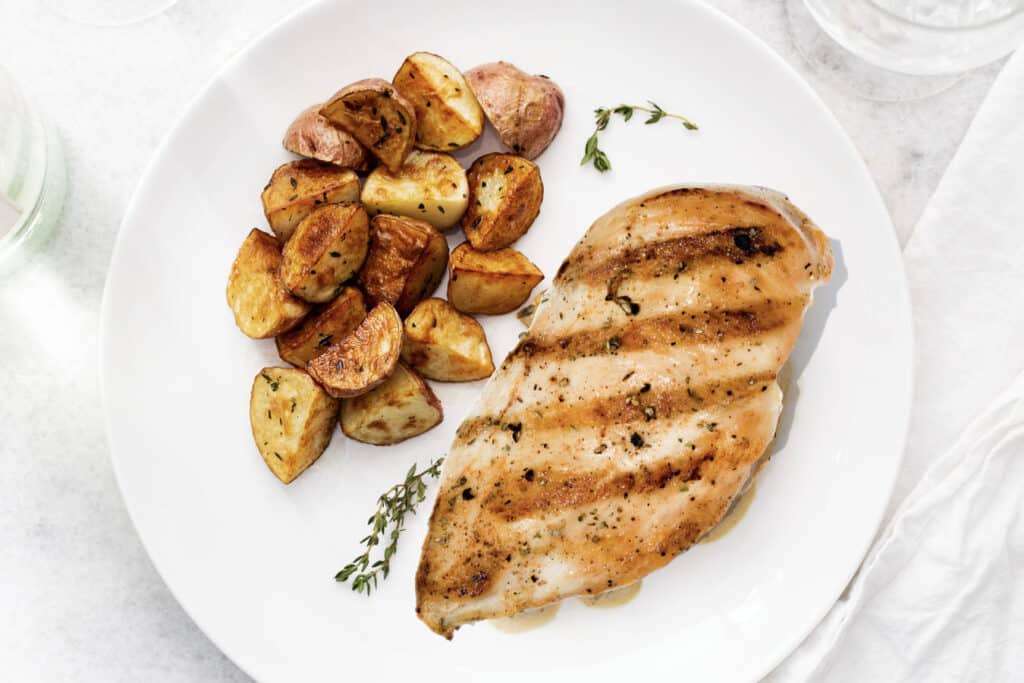
Vitamin B6
Vitamin B6 plays an essential role in the metabolism of protein (9). Studies have demonstrated that the more protein you eat, the more vitamin B6 your body needs to actually break down and use that protein.
Vitamin B6 can also promote red blood cell production and healthy levels of nitric oxide—which is produced naturally in the body and can support physical performance and endurance.
B6-friendly foods include fish, beef liver and other organ meats, potatoes, fruit, and fortified cereals in your daily diet.
Biotin
While great for hair, skin, and nails, biotin (vitamin B7) also transforms your macronutrients into energy for workouts. Biotin primarily converts food into energy, aiding fitness levels and enhancing muscle protein synthesis.
You can find biotin in foods like meat, eggs, nuts, sweet potatoes, and dairy products, or as a supplement.
Vitamin B12
Vitamin B12 is a heavy hitter for energy. Your body needs B12 to make red blood cells, which ferry oxygen to your tissues, helping you feel strong and energized throughout the day (10).
B12 is vital for nervous system function. It maintains myelin–a fatty nerve insulator that optimizes signaling from your brain–to make sure muscles contract when they’re needed (among other things).
Start with vitamin B12 foods like meat, fish, eggs, dairy, fortified milk, and fortified cereals. “Some people may find it challenging to obtain adequate amounts of B12 from diet alone, especially those following a vegan diet, who have chronic digestive diseases like Crohn’s disease, or are taking certain medications like Metformin,” says Fernando, noting these people may benefit from B12 supplementation.
Magnesium
Magnesium is responsible for hundreds of processes in your body, but about 50 percent of Americans don’t get enough magnesium. When it comes to your workout, magnesium plays a role in muscle contraction, heart regulation, and energy production.
Males over 30 should get 420 mg of magnesium a day. Pumpkin seeds, almonds, and chia seeds are a few ways to pack more magnesium in.
Calcium
Calcium boosts your bone health and supports muscle movement, too. Calcium is responsible for passing impulses from your nerves to your muscles, key for muscle contraction.
It also keeps your blood vessels in top shape and regulates blood pressure, which controls the pace at which oxygen is delivered to your muscles (and thus how you feel) during a workout.
For more calcium, try canned sardines, chia seeds, white beans, orange juice, and fortified cereals.
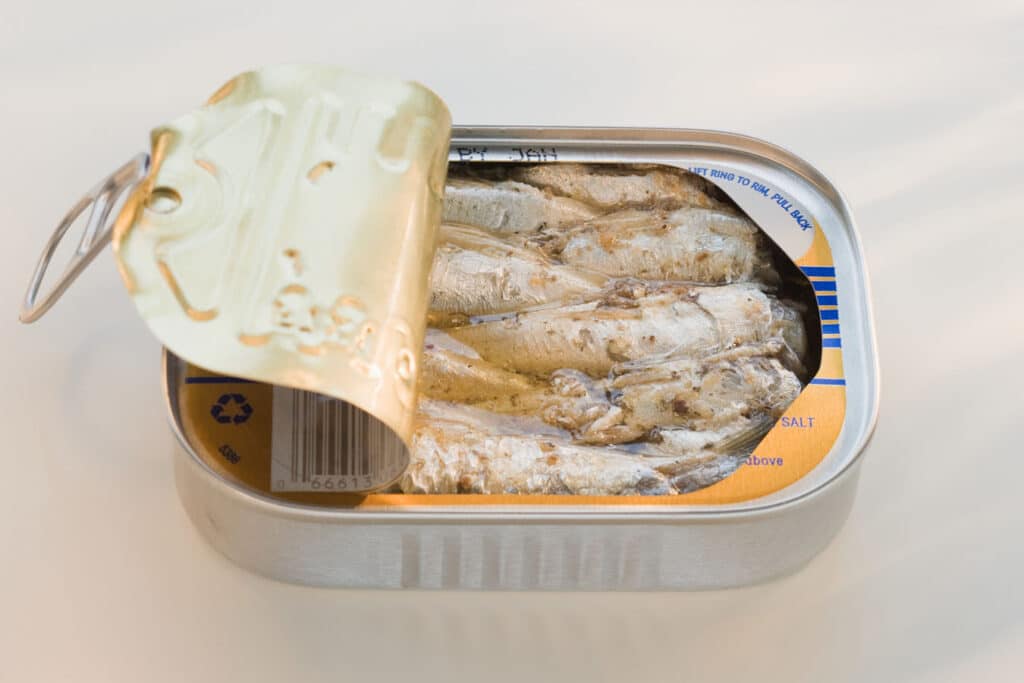
Zinc
Giving your body what it needs to repair after your workout is as important as feeling strong during the workout. Zinc helps rebuild muscle fibers after a hard lifting session (11).
Your body can’t make zinc so it’s essential to get it through your diet. Eat more dairy, meat, oysters, seeds, and veggies to get your daily needs.
Potassium
Your muscles need the right balance of potassium inside the cells and sodium outside for a muscle to contract. When that balance gets out of whack, it’s harder for your muscles to work.
That’s why hydrating with electrolytes such as sodium and potassium is crucial. Low potassium can lead to muscle cramps—hence why you’re told to down a banana when cramping.
Other potassium-rich foods include apricots, prunes, apples, oranges, tomatoes, lentils, soybeans, chicken, and turkey. Or try an electrolyte powder.
Do You Need a Supplement to Get Your Vitamins and Minerals?
“There’s no need for healthy adults to take a supplement,” says Fernando. By eating a well-rounded diet, you can avoid micronutrient deficiencies and level up your health and performance. How to know if you have a deficiency? Check with your doctor. A simple blood test can provide clarity on how your micronutrient intake is stacking up.
If you don’t have a deficiency, taking a supplement also won’t enhance performance or boost gains, she warns. “That said, if you follow a restrictive diet like a keto or plant-based diet, supplements can help fill in any nutrient gaps,” says Fernando. She recommends choosing a reputable supplement brand that does third-party testing to make sure you’re getting the most bang for your buck.
Don’t want a supplement stack 27 bottles deep? Fair. Try a multivitamin. “Look for a multivitamin with minimal additional junk like preservatives, coloring, or natural flavors,” registered dietitian Sarah Becker, M.S., R.D. previously told The Edge. She looks for brands that are Good Manufacturing Practices (GMP) certified—which ensures they’re accurately labeled, and tested for strength, quality, and purity.
Other Ways to Build Muscle
Micronutrients are important, but they’re just one tool in your muscle-building toolbox. Here are a few other options.
Strength training
Unless you’re specifically training to build muscle, no amount of vitamins or supplements are going to help you make gains. Try just 10 minutes of movement a day. The biggest shift you’ll feel mentally and physically is when you move from doing nothing to doing something.
Once you establish a base, you’ll get the energy to make more targeted adjustments to your routine, which is where training specifically for hypertrophy or strength comes in.
Protein
If you’ve done a hard-core workout, adequate protein can help you recharge and recover. Protein’s amino acids (the building blocks of protein) repair and maintain muscle tissue.
There are nine essential amino acids. Your body can’t make essential amino acids so you have to get them through your diet. The best sources— such as eggs, meat, dairy, edamame, and tofu—contain all nine essential amino acids, so they’re complete sources of protein.
However, incomplete sources of protein like branched-chain amino acids (BCAA’s)—particularly valine, leucine, and isoleucine—may help with muscle repair and soreness (12, 13, 14).
More evidence is needed to confirm if BCAA’s alone are sufficient, which is why your focus should be to eat high-quality proteins that contain a mix of essential amino acids. Aim for 0.5 to 0.8 grams per pound of bodyweight of protein per day to fuel muscle growth.
Hydration
It sounds simple, but water helps restore pH balance and flush waste products (like lactate) that accumulate in your muscles after a workout and contribute to muscle soreness. Water also helps to transport needed nutrients to cells to help them recover and function properly. Staying hydrated helps your muscles perform and feel their best.
Creatine
Study after study has confirmed that creatine can help build muscle strength and muscle mass, and boost exercise performance in young, healthy people (15). It also does way more than juice your lifting sessions. According to one review, creatine can enhance recovery, increase work capacity, and elevate training tolerance (16).
HMB
HMB is a chemical naturally produced in small amounts when your body breaks down leucine, a branched-chain amino acid found in foods like Greek yogurt, chicken, and beef that’s essential for protein synthesis and muscle repair (17).
Several human studies have confirmed HMB can help reduce age-related muscle loss, accelerate recovery, and improve exercise performance (18, 19, 20).
The problem? Even when you get a decent amount of leucine in your diet, your body only produces HMB in small amounts (in other words, not large enough to make a significant impact on muscle). Supplementing with an HMB capsule, tablet, or powder form can help keep your levels in check (21).
Testosterone
Feel like you have your basics down—nutrition, hydration, rest, and sleep—yet still struggling to put on muscle? It could be a sign of low testosterone. Testosterone stimulates muscle growth and strength. When T levels wane, gaining muscle is tough.
The first step: get tested. If you are running low, testosterone replacement therapy (TRT) can help you build muscle and boost energy for your gym sessions.
Hone’s at-home testosterone assessment is the simplest way to uncover whether your levels are low. If you qualify for treatment, TRT can be sent right to your door.
Glutathione
Glutathione is your body’s master antioxidant and can boost strength and physical performance. One study found that when taken before a workout, men performed better and felt less fatigued after their exercise session (22).
Another study found that when healthy older adults supplemented with glyNAC, a substance that increases glutathione levels, it led to improvements in muscle strength, gait speed, and body composition (23).
You can get more glutathione by eating glutathione foods like cruciferous vegetables, citrus, and whey protein. Glutathione injections are another easy way to boost your levels if you’re running low.
Risks of Taking Vitamins for Muscle Growth
There’s really no need to supplement with a vitamin or mineral unless you know your levels are low. A minimum daily dose of each vitamin is necessary to maintain good health. Significantly exceeding this dose, however, can cause illness. In general, the symptoms of vitamin toxicity include nausea, gastrointestinal problems like constipation and diarrhea, hair loss, rashes, and nerve damage.
The only way to know if you’re low on a vitamin and minerals is to get a blood test from your healthcare provider. From a test, they can point out specific vitamins and minerals you may be running low on, and exactly how much of each nutrient to supplement with to optimize your levels.
The Bottom Line
If you want bigger, stronger muscles, you need to fuel for growth. Vitamins like A, C, and B-complex work to keep your body running on all cylinders. Solid nutrition with whole foods and balanced micronutrients and macronutrients are the foundation for a healthy body and gains. From there, if you’re looking for an added boost, protein, pre-workout, or other interventions like TRT and glutathione injections can be the cherry on top.
References
1. Goldfarb, A. et al (2006). Effect of High Dose Vitamin C Supplementation on Muscle Soreness, Damage, Function, and Oxidative Stress to Eccentric Exercise.
2. Gunton, J. et al (2018). Vitamin D and Muscle.
3. Chen, C. et al (2019). Casual Link Between Vitamin D and Total Testosterone in Men: A Mendelian Randomization Analysis.
4. Dutra, M. et al (2019). Antioxidant Supplementation Impairs Changes in Body Composition Induced by Strength Training in Young Women.
5. Hoffman, M. et al (2017). A placebo-Controlled Trial of Riboflavin for Enhancement of Ultramarathon Recovery.
6. Igarashi, M. et al (2022). Chronic Nicotinamide Mononucleotide Supplementation Elevates Blood Nicotinaminde Adenine Dinucleotide Levels and Alters Muscle Function in Healthy Older Men.
7. Pirinen, E. et al (2020). Niacin Cures Systemic NAD+ Deficiency and Improves Muscle Performance in Adult-Onset Mitochondrial Myopathy.
8. Shomali, T. et al (2018). Effect of Pharmacological Doses of Niacin on Testicular Structure and Function in Normal and Diabetic Rats.
9. Parra, M. et al (2018) Vitamin B6 and Its Role in Cell Metabolism and Physiology.
10. Ankar, A. et al (2022). Vitamin B12 Deficiency.
11.Hernandez-Camacho, J. et al (2020). Zinc at the Crossroads of Exercise and Proteostasis.
12. Jackman, S. et al (2017). Branched-Chain Amino Acid Ingestion Stimulates Muscle Myofibrillar Protein Synthesis following Resistance Exercise in Humans.
13. Khemtong, C. et al (2021). Does Branched-Chain Amino Acids (BCAAs) Supplementation Attenuate Muscle Damage Markers and Soreness after Resistance Exercise in Trained Males? A Meta-Analysis of Randomized Controlled Trials.
14. Doma, K. et al (2021). The Effect of Branched-Chain Amino Acid on Muscle Damage Markers and Performance Following Strenuous Exercise: a Systematic Review and Meta-Analysis.
15. Wu, S. et al. (2022). Creatine Supplementation for Muscle Growth: A Scoping Review of Randomized Clinical Trials From 2012 to 2020.
16. Kreider, R. et al. (2012). Creatine Supplementation in Exercise, Sport, and Medicine.
17. Wilkinson, D. et al (2013). Effects of Leucine and Its Metabolite β-hydroxy-β-methylbutyrate on Human Skeletal Muscle Protein Metabolism.
18. Lin, Z. et al (2022). Effect of β-hydroxy β-methylbutyrate (HMB) on Muscle Strength in the Elderly Population: A Meta-Analysis.
19. Bear, D. et al (2019). β-hydroxy β-methylbutyrate and Its Impact on Skeletal Muscle Mass and Physical Function in Clinical Practice: A Systematic Review and Meta-Analysis.
20. Durkalex-Michalski, K. et al (2017). The Effect of 12-Week Beta-hydroxy-beta-methylbutyrate (HMB) Supplementation in Highly-Trained Combat Sports Athletes: A Randomised, Double-Blind, Placebo-Controlled Crossover Study.
21. Molfino, A. et al (2013). Beta-hydroxy-beta-methylbutyrate Supplementation in Health and Disease: A Systematic Review of Randomized Trials.
22. Aoi, W. et al (2015). Glutathione Supplementation Suppresses Muscle Fatigue Induced by Prolonged Exercise Via Improved Aerobic Metabolism.
23.Kumar, P. et al (2022). Glycine and N-Acetylcysteine (GlyNAC) Supplementation in Older Adults Improves Glutathione Deficiency, Oxidative Stress, Mitochondrial Dysfunction, Inflammation, Insulin Resistance, Endothelial Dysfunction, Genotoxicity, Muscle Strength, and Cognition: Results of a Pilot Clinical Trial.



